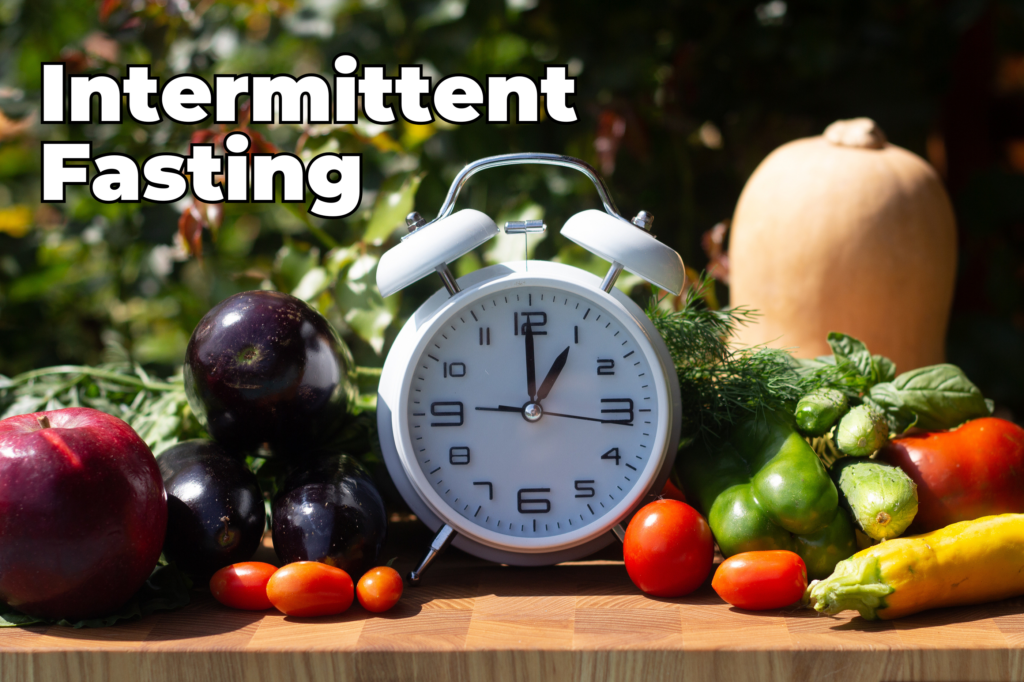November 18, 2024

Intermittent fasting (IF) has gained significant popularity in recent years as a lifestyle choice with profound health benefits. From enhanced metabolic function to improved cellular repair, the practice of intermittent fasting offers numerous advantages that resonate with individuals seeking to optimize their health. Various methods of intermittent fasting exist, each offering unique benefits and flexibility for different schedules and health goals. Additionally, new research suggests that combining fasting with Rapamycin, a substance known for its anti-aging properties, can amplify certain effects, making the approach even more appealing.
Intermittent fasting (IF) is not a diet but a pattern of eating that alternates between periods of eating and fasting. Unlike traditional diets that dictate which foods to eat, IF focuses on when you eat. (Of course, you’ll want to maintain your healthiest, most nutrient dense diet as you practice IF!)
Common fasting windows range from 16 to 24 hours, but there are also approaches like OMAD (one meal a day), which restricts food intake to a single meal within a 24-hour period. By allowing the body to enter fasting periods, IF triggers biological processes that aid in energy regulation, metabolic flexibility, and cellular rejuvenation.
Choosing the right fasting protocol can make IF sustainable and tailored to personal goals. Here are a few popular methods:
Each of these methods triggers specific biological responses in the body, leading to a range of benefits.
Research indicates that intermittent fasting offers several health benefits, primarily due to its effects on cellular health, metabolism, and inflammation.
Rapamycin, an mTOR (mammalian target of rapamycin) inhibitor, has been studied for its potential to extend lifespan and improve health by mimicking some of the effects of fasting. When combined with intermittent fasting, Rapamycin can enhance autophagy and cellular repair, amplifying the anti-aging benefits associated with fasting (6).
Rapamycin is an immunosuppressant used primarily in organ transplantation, but researchers have found that, at lower doses, it may have anti-aging effects. By inhibiting mTOR, a pathway associated with cell growth and proliferation, Rapamycin allows the body to enter a cellular repair mode similar to what occurs during fasting. This combination can deepen the autophagic response, promoting more efficient cellular cleanup.
For those new to intermittent fasting, it’s essential to start slowly and choose a method that aligns with their lifestyle. Here are a few tips to make intermittent fasting sustainable:
Intermittent fasting offers a range of scientifically supported benefits, from enhanced metabolic health and cellular repair to reduced inflammation and potentially increased longevity. Combining fasting with Rapamycin may amplify these effects, particularly in cellular resilience and anti-aging. As research in this area continues, intermittent fasting remains a promising lifestyle choice that can support optimal health when done mindfully and in consultation with one of our excellent providers.
If you’re ready to dive in and reap the benefits of intermittent fasting, contact us today at 281-990-4846 to schedule a complimentary consultation with one of our Wellness Consultants. We look forward to serving you on your journey to optimal wellness and longevity!
"*" indicates required fields
Since 1989, Hotze Health & Wellness Center has helped over 33,000 patients get their lives back using bioidentical hormones that restore hormones to optimal levels, strengthen immune systems, and increase energy levels. Our treatment regimen addresses the root cause of hypothyroidism, adrenal fatigue, menopause, perimenopause, low testosterone, allergies, and candida.
Led by best-selling author, radio host and leading natural health expert, Steven F. Hotze, M.D., our medical team has over 100 years’ combined medical experience backed by a staff of nearly 100 caring professionals who provide an environment of hope and extraordinary hospitality for each of our patients, who we call our guests. It is our deepest desire to help you obtain and maintain health and wellness naturally so that you may enjoy a better quality of life, pure and simple.
Do you want to live a healthy, happy, purpose-driven life? Do you want to restore your health so that your loss of energy, weight gain, joint pain, depression and lack of drive or motivation won’t hold you back from achieving your personal and professional goals?
Dr. Steven Hotze wants that for you, too. In fact, in his powerful and passionate video entitled, “What I Believe”, Dr. Hotze shares how his Christian worldview and pivotal experiences have ignited a deep desire to offer the message of hope and optimal health to all who need to hear it.









At Hotze Health & Wellness Center, our doctors are changing the way women and men are treated through the use of bioidentical hormones. Our natural treatments have helped over 33,000 individuals with hypothyroidism, adrenal fatigue, menopause, perimenopause, low testosterone, allergies, candida, detoxification and nutritional deficiencies.
Meet our doctors"After a traumatic accident, I was told that I was in early menopause in my 20s and could never have children, however after restoring my hormones, I am now expecting baby #7!”
Leave a Reply